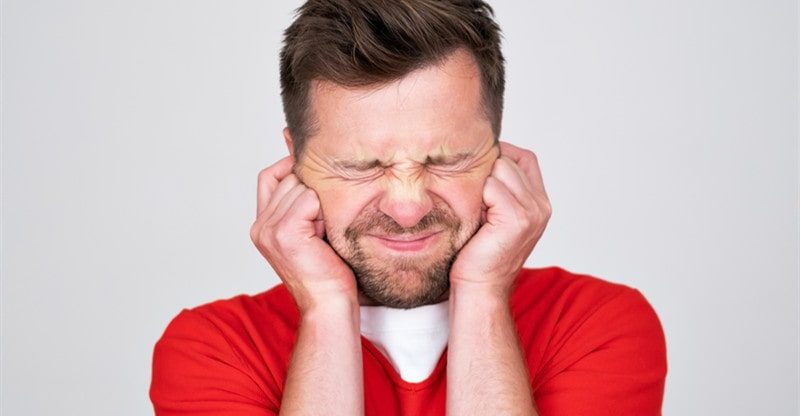How to Identify the Symptoms of Crackling Ears
Have you ever experienced crackling in your ears? If so, you’re not alone. People often experience this sensation, which is both irritating and concerning. But, How to Identify the Symptoms of Crackling Ears? The crackling ears sound like rice krispies.
There are several reasons for cracking ears. Here I will discuss the most common causes, symptoms, and treatment of crackling in ears. And also give some tips on how to prevent the crackling in ears. So, keep reading to find out the common causes and home remedies for crackling in the ear.
What Are The Common Reasons For Crackling In-Ear?
There are a few conditions that can cause crackling in the ear. A number of these have to do with health conditions, and a few have to do with ear problems.
-
Eustachian Tube Dysfunction
A different ear canal shape occurs in Eustachian Tube Dysfunction. Fluid cannot drain from the middle ear through the Eustachian tubes as the inner ear becomes narrow or blocked. Symptoms like crackling in the ears or fluid draining from the outer ear.
-
Ear Infection
Acute otitis media is an inflammation of the middle ear. Children are more likely to suffer from it, but adults can also be affected. Your ears can sound crackly if you have an ear infection, and if the infection is severe, you might not be able to hear very well.
Also, you may experience ear drainage, ear pain, loss of balance, and difficulty opening or closing your mouth. Symptoms may include feeling dizzy, nauseated, and running a fever.
-
Temporomandibular Joint and Muscle Disorder (TMJ)
Inflammation at your jawbone’s hinges can refer to pain in the inner ear. When your jaw hinge is inflamed, it can impact your inner ear and cause pain. TMJ might cause crackling sounds when you chew or open your mouth.
-
Earwax Buildup
It is more common for some people to have excessive earwax buildup. You might hear a crackling sound when you have an earwax blockage or feel like you can’t hear well. You might also feel plugged or itchy in your ear.
-
Meniere’s Disease
Meniere’s disease is an inner ear disorder that causes vertigo, deafness, and even ear crackling. It can cause progressive hearing loss, even if it affects only one ear at a time. One of the symptoms is sudden dizziness with varying frequencies and durations.
Meniere’s disease is a common cause of high-frequency hearing loss among adults. The symptoms of this condition, such as vertigo, ear fullness, and crackling in the ears, can make it difficult to detect until it starts to affect your hearing significantly. The symptoms of Meniere’s disease can vary from person to person and may affect only one ear.
-
Middle Ear Myoclonus (MEM)
Tinnitus with middle ear myoclonus (MEM) is a rare condition. Stapedius or tensor tympani muscles in your ear spasm, causing it. These muscles transmit vibrations from the middle ear and eardrum to the inner ear.
The exact cause of MEM is unknown.Some types of tremors or spasms may cause this condition, such as hemifacial spasms and congenital conditions.
Spasms of the stapedius muscle cause a crackling or buzzing sound. A clicking sound may be heard when the tensor tympani muscle spasms.
These noises can vary in intensity or pitch from person to person. These sounds can also vary in other characteristics. They may, for instance:
- Rhythmical or irregular
- Continually occur or come and go
- Either one or both ears are affected
What Is The Treatment For Crackling In The Ear?
It depends on what’s causing your crackling ears and how you treat them. Identifying the cause of your ears crackling and offering effective treatment can be done by your doctor.
Crackling ears often resolve on their own with time. During a cold or allergy season, you may have clogged eustachian tubes. Over-the-counter decongestants can help you unclog your ears while you recover.
It is necessary to treat ear infections more seriously. Without treatment, these infections can cause permanent hearing loss. If you have ear pain or a fever, talk to your doctor.
TMJ and Eustachian Tube Dysfunction sometimes require surgical intervention. If you need this surgery, you might need to see a TMJ specialist or a professional who specializes in Eustachian tube dysfunction, but it can help you feel more comfortable and reduce the crackling in your ears.
When To Talk To Your Doctor?
Unless you also have ear pain or a fever, crackling in your ears is usually not dangerous. If the noise bothers you or lasts long, consult a doctor.
You should seek medical attention whenever you hear crackling along with pain, pressure, headache, or fever.
Home Remedies For Ear Crackling
You can try a few home remedies if your ear crackling isn’t severe or associated with other symptoms.
Using home remedies
- Make sure your ears are popped. By swallowing, yawning, or chewing, you can sometimes unclog your ears and help equalize middle ear pressure.
- Rinse your nose with water.When your eustachian tubes are dysfunctional, a saltwater rinse can help remove excess mucus.
- It is necessary to clean the ears wax. The most effective way to remove earwax is to soften it with mineral oil, hydrogen peroxide, or over-the-counter ear drops.
- Exercises for the TMJ. Applying an ice pack or massaging the area may ease the pain and discomfort of TMJ disorders.
How To Prevent The Crackling In The Ear
You can prevent crackling in your ears by following the following tips:
-
Keep Your Respiratory System Healthy.
Colds and flu often cause eustachian tube dysfunction. You should keep your hands clean frequently, avoid sharing personal items with others, and stay away from sick people.
-
Keep Cotton Swabs Away From Your Ears.
It can cause your ear canal to become clogged with earwax.
-
Keep Your Environment Clean.
Pollution and allergens may contribute to eustachian tube dysfunction. So, it is important to keep your environment clean.
-
Stay Away From Loud Noises.
Loud noises can damage your ears and cause tinnitus. When you are in a loud environment, wear hearing protection.
Final Thoughts
It can be uncomfortable and worrying about feeling your ears crackle. Nevertheless, there are many potential causes for this sensation. Identifying the symptoms and understanding the underlying causes can alleviate the discomfort and prevent future ear crackling.
FAQ
Is Crackling In Ear Serious?
The crackling of the ears is usually harmless if it occurs only occasionally. It is important to see a doctor if you have frequent or severe symptoms. Several possible causes of impacted earwax include Eustachian tube dysfunction, myoclonus, and TMJ dysfunction.
What Causes Crackling In The Ear With No Pain?
Some conditions can cause crackling in your ears without causing significant pain, including mild earwax buildup or mild eustachian tube dysfunction. Symptoms vary from person to person, so pain, discomfort, and irritation are possible.



